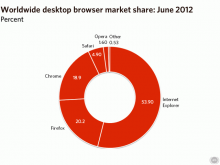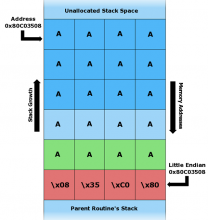'SMSZombie' Trojan infects 500,000 Chinese Android users
Reports have emerged from China of an ingenious new backdoor Android malware attack that has infected hundreds of thousands of subscribers and can prove difficult to de-install without technical support.
Dubbed Trojan!SMSZombie.A - 'SMSZombie' for short - by one of the companies reporting on it, the malware is said to have spread through the largest Chinese Android marketplace, GFan, piggybacking itself as a back door on the back of porn-themed wallpaper apps.













































































